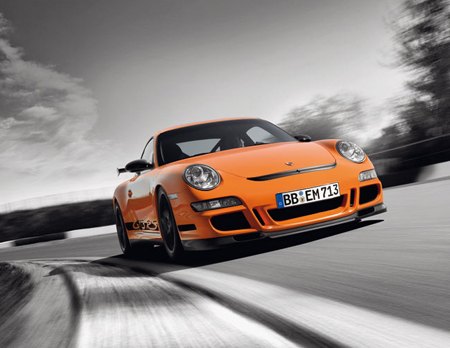Editorial: How Porsche NSFWed the Hedge Funds

So you thought Porsche financed the VW takeover by foisting overpriced floormats and trucks on their well-heeled buyers? Yesterday’s issue of Die Welt, Germany’s conservative newspaper, thinks different. They undug the dirt on Porsche’s takeover-machinations of Volkswagen. It’s a story that makes Cerberus look like a frisky puppy. It’s an account that makes banks and hedge funds look like morons.
In March 2005, Porsche Chief Wendelin Wiedeking, and his clever CFO Harald Härter traveled to the picturesque Salzburg. They presented to the Porsche/Piech clan their strategy to subjugate the auto giant Volkswagen. The cunning plan: Porsche buys VW for no money. Make that: Porsche bamboozles hedge funds– supposedly the smartest of the smart– into unwittingly forking over the cash.
The Porsche/Piech clan liked the plan, and it was set in motion. Unspoken, but obvious: that meeting included-– virtually at least-– Ferdinand Piech. As every TTAC B&B knows, Ferdinand Piech owns a good chunk of Porsche, and serves as the head of Volkswagen’s Supervisory Board. Did he exercise the powers vested into him, and warned the shareholders of VW of the machinations? We don’t think so.
Using the whole arsenal of arbitrage, swaps, puts, straddles, fraptions, and butterflies, Porsche drove the VW share up, while the hedge funds, fixated on the fundamentals of the flopping auto market, sold short. Porsche used every available loophole of the German law: A swap for instance doesn’t need to be registered. Porsche owned more and more of VW without anyone noticing. Porsche/Piech controlled the news. They could buy low, sell high, and with leverage that would have put the awe in Archimedes. The proceeds were used to buy more stock (to move it) and more options (to make more money.)
Over the years, Porsche kept people guessing why they would invest into VW at all. Three years ago, Porsche announced to an astounded world that they bought 20 percent of VW’s stock. They positioned themselves as the benign white knight that kept VW’s vestigial virginity from being gang-raped by rabid Auslandskonzerne (foreign corporations.) If anybody asked where this would lead, no answers followed.
Did Porsche want just a small chunk of VW? Or a blocking minority of 25 percent? Or, gasp, would they go for 51 percent? When questioned, Wiedekind assuaged the markets: “We are not going for a blocking minority.” A few months later, Porsche had more than 25 percent. Reminded of what he had said before, Wiedekind smiled. He had not lied. A blocking minority was not what they had in mind. They wanted the whole kit and caboodle.
In the meantime, Porsche conducted the orchestra of financial instruments like a Kapital-Karajan. Their financial fiddling did not remain completely unnoticed. Says the Economist, a bit belatedly: “The risks of short selling should have been apparent to the brightest hedge-fund managers in Mayfair and Greenwich because of widespread suspicion that Porsche, a dab hand in currency-derivatives markets, was also mucking about with options on VW stock.”
Indeed, Morgan Stanley warned clients on October 8th to refrain from playing “billionaire’s poker” by betting against Porsche. Max Warburton of Alliance Bernstein correctly predicted Porsche could make billions by squeezing short-sellers of VW’s shares. Porsche’s answer? “A fairy-tale.”
Likewise, Porsche’s balance sheet got curiouser and curiouser: In fiscal 2005/2006, Porsche showed a profit of €2.1b before tax, and of that, a whopping €900m were “non recurring items” – an euphemism for gains from speculation. “Currently, Porsche makes only a quarter of its profits from building its luxury cars,” says Die Welt, “and it won’t be long before their profits exceed their annual sales.” Which stood at €7.4b as of the last fiscal year.
The stock yo-yo of last week may have brought Porsche close, if not beyond that elusive target. In an all-out final attack, Porsche drove the hedgies into panic-buying, psyched funds managers into loading up on VW at all cost. Then, Porsche sold their options and made an even bigger killing. With an utter deficiency of shame, they spun even that as “providing a greater free-float to a constrained market.”
The funny thing: Porsche may get away with the murder of the hedgies. Actually, in Germany, Porsche’s backs are being slapped with Schadenfreude. One CEO of another company that is part of the DAX, wisely said off the record: ”How Porsche engineered the financing of the VW takeover is exemplary. Ingenious!” Ulrich Hocker of the Deutsche Schutzgemeinschaft für Wertpapierbesitz (German Protective Association of Shareholders) grins: “The losers are no small stockholders. This time, it was professionals who should have known the risks.”
The losers see it different: “Stock manipulation” grumbles DWS, the fonds of Germany’s banking giant Deutsche Bank. Unless totally dead, losers have a tendency to get even. Sneers the Economist: “Porsche may struggle to sell 911s to hedge-fund managers for years and years to come.” That may be the most benign revenge of the many that are being hatched in the hedges.

Bertel Schmitt comes back to journalism after taking a 35 year break in advertising and marketing. He ran and owned advertising agencies in Duesseldorf, Germany, and New York City. Volkswagen A.G. was Bertel's most important corporate account. Schmitt's advertising and marketing career touched many corners of the industry with a special focus on automotive products and services. Since 2004, he lives in Japan and China with his wife <a href="http://www.tomokoandbertel.com"> Tomoko </a>. Bertel Schmitt is a founding board member of the <a href="http://www.offshoresuperseries.com"> Offshore Super Series </a>, an American offshore powerboat racing organization. He is co-owner of the racing team Typhoon.
More by Bertel Schmitt
Latest Car Reviews
Read moreLatest Product Reviews
Read moreRecent Comments
- Kjhkjlhkjhkljh kljhjkhjklhkjh A prelude is a bad idea. There is already Acura with all the weird sport trims. This will not make back it's R&D money.
- Analoggrotto I don't see a red car here, how blazing stupid are you people?
- Redapple2 Love the wheels
- Redapple2 Good luck to them. They used to make great cars. 510. 240Z, Sentra SE-R. Maxima. Frontier.
- Joe65688619 Under Ghosn they went through the same short-term bottom-line thinking that GM did in the 80s/90s, and they have not recovered say, to their heyday in the 50s and 60s in terms of market share and innovation. Poor design decisions (a CVT in their front-wheel drive "4-Door Sports Car", model overlap in a poorly performing segment (they never needed the Altima AND the Maxima...what they needed was one vehicle with different drivetrain, including hybrid, to compete with the Accord/Camry, and decontenting their vehicles: My 2012 QX56 (I know, not a Nissan, but the same holds for the Armada) had power rear windows in the cargo area that could vent, a glass hatch on the back door that could be opened separate from the whole liftgate (in such a tall vehicle, kinda essential if you have it in a garage and want to load the trunk without having to open the garage door to make room for the lift gate), a nice driver's side folding armrest, and a few other quality-of-life details absent from my 2018 QX80. In a competitive market this attention to detai is can be the differentiator that sell cars. Now they are caught in the middle of the market, competing more with Hyundai and Kia and selling discounted vehicles near the same price points, but losing money on them. They invested also invested a lot in niche platforms. The Leaf was one of the first full EVs, but never really evolved. They misjudged the market - luxury EVs are selling, small budget models not so much. Variable compression engines offering little in terms of real-world power or tech, let a lot of complexity that is leading to higher failure rates. Aside from the Z and GT-R (low volume models), not much forced induction (whether your a fan or not, look at what Honda did with the CR-V and Acura RDX - same chassis, slap a turbo on it, make it nicer inside, and now you can sell it as a semi-premium brand with higher markup). That said, I do believe they retain the technical and engineering capability to do far better. About time management realized they need to make smarter investments and understand their markets better.


































Comments
Join the conversation
[...] people are international funds that sued Porsche and Volkswagen for more than €5 billion. They felt duped after getting caught in a monster short squeeze. On the Porsche side, the suits are against Porsche SE, a holding company that owns Porsche [...]